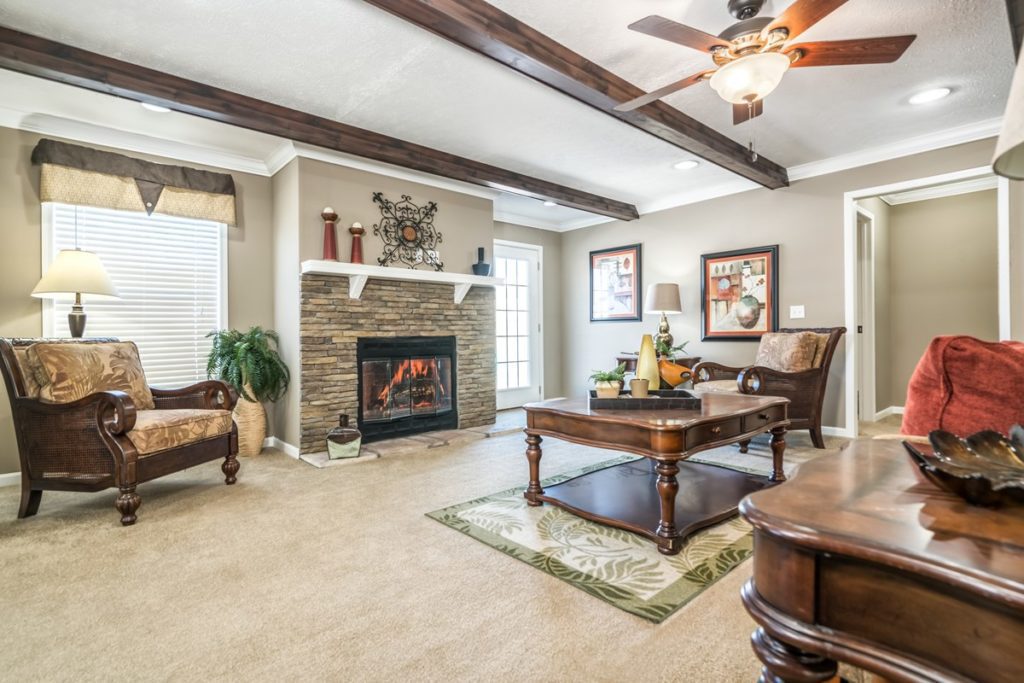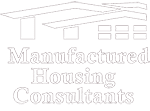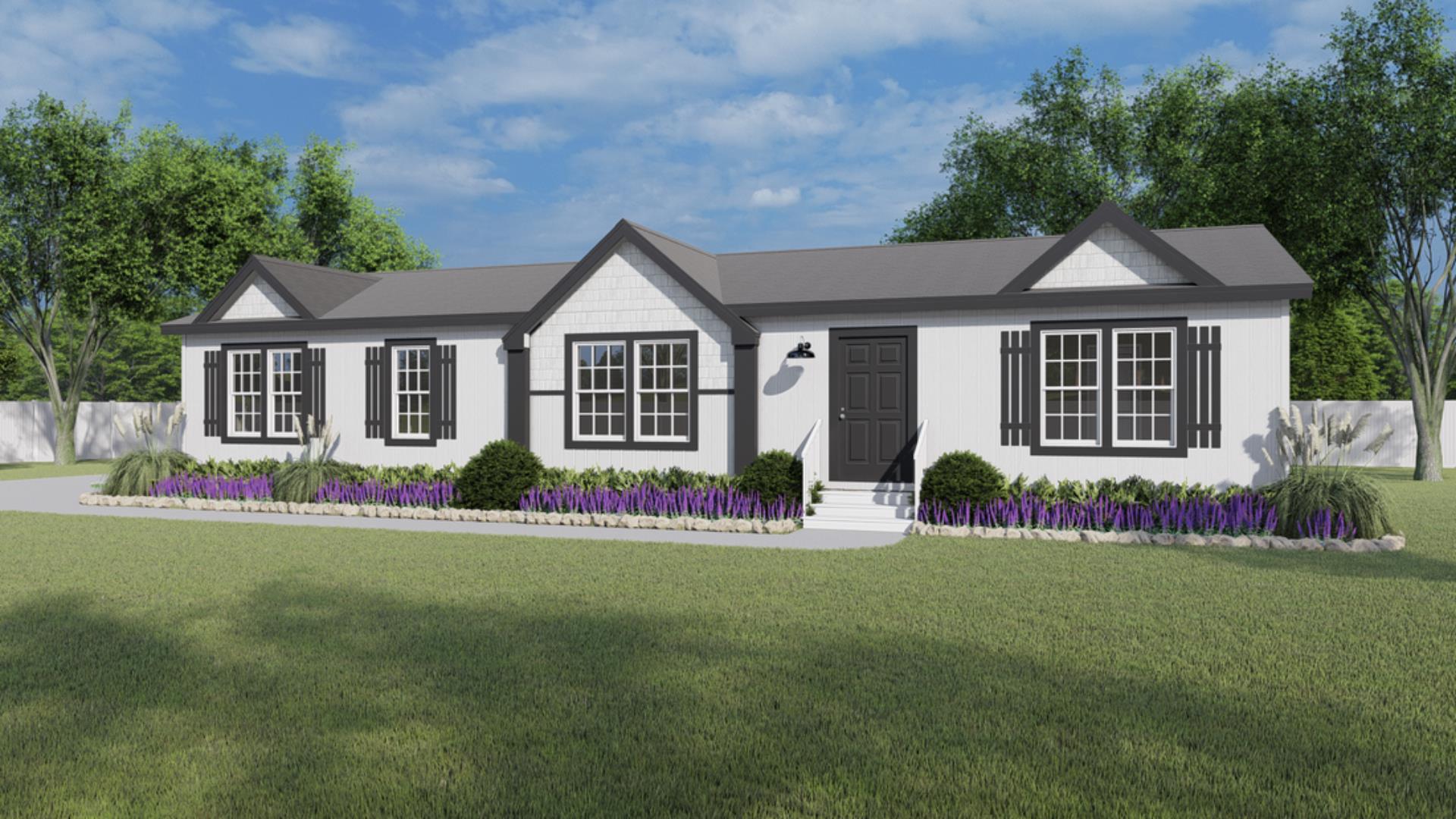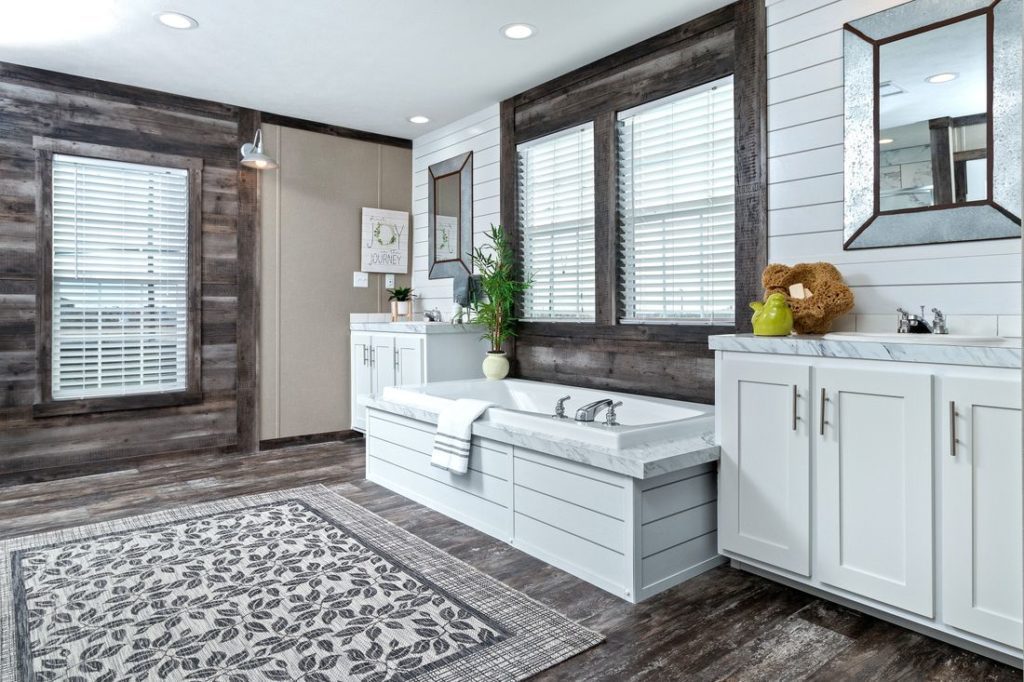Applying for a mobile home loan can be a bit different from a traditional home loan. This guide will walk you through the home purchase process, from understanding the unique factors to securing the best financing options when buying a mobile home. We’ll explore the specific considerations for modular homes, including their potential advantages and challenges in the loan application process.
Whether you’re a first-time buyer or a seasoned homeowner, this guide will provide valuable insights to help you navigate the complexities of mobile home financing.
Understanding Mobile Home Loans
Mobile home loans differ significantly from traditional mortgages due to the type of home you’re buying. While traditional homes are typically considered real property, mobile homes are usually classified as personal property. This distinction impacts the loan types available and the terms to finance the purchase.
Here are some key differences:
- Interest Rates: Mobile home loans often have higher interest rates than traditional mortgages due to the perceived higher risk associated with mobile homes.
- Down Payment Requirements: Down payment requirements can vary widely, but they are generally higher for mobile home loans compared to traditional mortgages.
- Loan Terms: Loan terms for mobile home loans also can be shorter than site-built home mortgages, which may result in higher monthly payments.
- Insurance: You’ll need to insure both the mobile home and the land it’s on, which can add to your overall costs.
It’s important to consult with a lender to understand the specific requirements and options available for your particular situation, especially if you’re considering a modular home.
On top of that, the classification of a home as real or personal property significantly impacts the types of loans available and the terms associated with them. Here’s how:
Real Property:
- Traditional Mortgage: When a home is classified as real property, it’s typically eligible for a traditional mortgage. These loans often offer lower interest rates, longer terms, and more favorable terms.
- Tax Benefits: Real property ownership often comes with tax benefits, such as property tax deductions and potential capital gains tax advantages. You can also find home loans with fixed interest rates.
Personal Property:
- Chattel Mortgage: Mobile homes are often classified as personal property. In such cases, a chattel mortgage is typically used. These loans often have higher interest rates, shorter terms, and less favorable terms compared to traditional mortgages.
- Limited Tax Benefits: Personal property ownership often has fewer tax benefits compared to real property.
Modular Homes: Modular homes can blur the lines between real and personal property. While they are constructed off-site, they can be permanently affixed to a foundation, making them more similar to traditional homes. However, the specific classification can vary depending on local regulations and how the home is installed.
It’s crucial to consult with a lender and a real estate attorney to determine the specific classification of your modular home and the available financing options. Understanding the classification will help you navigate the loan process and secure the best terms for your situation.
Types of Mobile Home Loans Available
Personal Property Loans (Chattel Loans)
Personal property loans, or chattel loans, are commonly used to finance mobile homes, especially when they’re situated on leased land. These loans are secured by the mobile home itself, rather than the land. While they can be a quicker and more accessible option, they often come with higher interest rates.
Pros:
- Faster Approval: Personal property loans often have a faster approval process compared to traditional mortgages.
- Flexible Terms: Lenders may offer more flexible terms, such as shorter loan terms or variable interest rates.
Cons:
- Higher Interest Rates: These loans typically have higher interest rates than traditional mortgages.
- Limited Tax Benefits: There are fewer tax benefits associated with personal property loans compared to real estate loans.
VA and FHA Loans for Mobile Homes
Both the Federal Housing Administration (FHA) and the Department of Veterans Affairs (VA) offer loan programs for manufactured homes. These programs can provide significant advantages, such as lower down payment requirements and competitive interest rates.
Eligibility Requirements:
- FHA: Borrowers must meet specific credit score and income requirements. The manufactured home must meet HUD construction and safety standards.
- VA: Veterans, active-duty military personnel, and eligible surviving spouses can qualify for VA loans. The manufactured home must meet VA property standards.
Advantages:
- Lower Down Payments: FHA and VA loans often require lower down payments compared to conventional options.
- Competitive Interest Rates: These government-backed loans typically offer competitive interest rates.
- Flexible Financing Options: Both programs offer flexible financing options, including both the home attached to land, and the land itself.
Utility Connections (Water, Electricity, Sewage)
The cost of connecting utilities to a manufactured home can vary significantly depending on several factors, including:
- Location: Rural areas may require more extensive infrastructure and longer connections, leading to higher costs.
- Proximity to Existing Services: Homes closer to existing water, electric, and sewer lines will generally have lower connection costs.
- Local Regulations: Local regulations and permit fees can impact the overall cost of utility connections.
Conventional Mobile Home Loans
Conventional mobile home loans are offered by traditional lenders, such as banks and credit unions. These can be a good option for borrowers who don’t qualify for government-backed loans or prefer the flexibility of a conventional loan.
When to Opt for a Conventional Loan:
- Higher Credit Score: If you have a higher credit score, you may be able to qualify for better interest rates with a conventional loan.
- Larger Down Payment: A larger down payment can help you secure a lower interest rate.
- Specific Lender Criteria: Conventional lenders may have specific criteria for manufactured homes, such as age and construction standards.
Key Lender Criteria:
- Credit Score: A good credit score is essential for qualifying for a conventional loan.
- Income and Debt: Lenders will assess your income and debt-to-income ratio to determine your ability to repay the loan.
- Property Appraisal: The lender will appraise the manufactured home to determine its value.
- Home Inspection: A home inspection may be required to ensure the home meets safety and quality standards.
Preparing for Your Mobile Home Loan Application

Key Steps to Take Before Applying
Before you embark on your mobile home financing journey, it’s essential to take a few key steps to increase your chances of a successful application:
- Assess Your Financial Health:
- Credit Score: A good credit score is crucial for securing favorable loan terms. Aim for a score of 650 or higher. A higher score often translates to lower interest rates and better options.
- Income Stability: Lenders will assess your income stability to determine your ability to repay the loan. Steady employment and consistent income are essential.
- Gather Essential Documents:
- Proof of Income: This includes pay stubs, W-2 forms, and tax returns.
- Identification: A valid government-issued ID, such as a driver’s license or passport.
- Mobile Home Details: Information about the make, model, year, and any relevant documentation, such as the title or purchase agreement.
- Research Lenders:
- Specialists in Mobile Home Financing: Working with lenders who specialize in mobile home financing is crucial. These lenders have a deep understanding of the unique aspects of mobile home financing and can provide tailored advice and support.
- Compare Rates and Terms: Shop around and compare interest rates, fees, and loan terms from different lenders.
- Consider Online Lenders: Online lenders can offer competitive rates and a convenient application process. However, it’s important to research their reputation and customer reviews.
By taking these steps, you can increase your chances of a smooth and successful mobile home loan application.
Tips for Strengthening Your Application
To improve your chances of securing a favorable mobile home loan, consider these tips:
- Improve Your Credit Score:
- Check Your Credit Report: Regularly review your credit report for errors and inaccuracies.
- Pay Bills on Time: Consistent on-time payments are crucial for a good credit score.
- Reduce Credit Card Debt: Lowering your credit utilization ratio can significantly improve your score.
- Avoid New Credit: Opening new credit accounts can temporarily lower your score.
- Save for a Larger Down Payment:
- Budgeting: Create a budget to track your expenses and identify areas where you can save.
- Side Hustle: Consider taking on a part-time job or freelancing to increase your income.
- Emergency Fund: Maintain an emergency fund to cover unexpected expenses and avoid using credit cards.
- Get Pre-Approved:
- Faster Approval Process: A pre-approval letter can expedite the loan approval process.
- Stronger Negotiating Position: Pre-approval demonstrates your financial readiness, giving you more leverage in negotiations with sellers.
- Competitive Offers: A pre-approval letter can help you make competitive offers on mobile homes.
Step-by-Step Mobile Home Loan Application Process
Step 1: Researching and Comparing Lenders
The first step in the mobile home loan application process is to research and compare lenders. Focus on lenders who specialize in mobile home financing, as they have a deep understanding of the unique aspects of these loans. Compare rates, terms, fees, and closing costs offered by different lenders to find the best deal. Consider factors such as interest rates, down payment requirements, and loan terms to make an informed decision.
Step 2: Pre-Qualification and Pre-Approval
Pre-qualification and pre-approval are two important steps in the loan application process. Pre-qualification is a preliminary assessment of your financial situation to determine your eligibility for a loan. It’s a quick and easy process that can give you a general idea of how much you may be able to borrow.
Pre-approval, on the other hand, is a more formal process that involves a credit check and a review of your financial documents. A pre-approval letter indicates that you’re financially qualified to purchase a mobile home and can strengthen your bargaining power when negotiating with sellers.
Step 3: Submitting Your Loan Application
Once you’ve chosen a lender and obtained pre-approval, you can submit your loan application. Ensure that your application is complete and accurate by providing all the required documentation, such as proof of income, tax returns, and identification. Avoid submitting outdated documents, as this can delay the process.
Step 4: Loan Underwriting and Approval
After you submit your application, the lender will review your financial information and assess your creditworthiness. This process is known as underwriting. The underwriter will verify your income, assets, and debts to determine your ability to repay the loan.
If your application is approved, the lender will provide you with a loan commitment letter, outlining the loan terms, interest rate, and closing costs. If your application is denied, the lender will typically provide a reason for the denial, such as a low credit score or insufficient income. You may be able to reapply after addressing the specific issues raised by the lender.
Costs to Consider Beyond the Mobile Home Loan
Down Payments and Closing Costs
When purchasing a mobile home, you’ll need to consider both the down payment and closing costs. Down payment requirements can vary, but typically range from 5% to 20% of the purchase price. Closing costs can add up, including fees for loan origination, appraisal, title search, and property taxes.
Insurance and Property Taxes
Insurance is essential for protecting your investment. Mobile home insurance covers the structure of the home, while separate policies may be needed for personal belongings and liability. Insurance premiums can vary based on factors like the home’s age, location, and coverage level.
Property taxes are another significant expense. The specific tax rate will depend on the location of the mobile home, whether it’s on leased land or owned property, and local tax laws.
Maintenance and Park Fees
If you’re living in a mobile home park, you’ll need to factor in monthly lot rent or park fees. These fees cover amenities like water, sewer, and garbage services. Additionally, you’ll have ongoing maintenance costs, such as repairs, upgrades, and utility bills. Regular maintenance can help prolong the life of your mobile home and prevent costly repairs in the future.
Common Challenges and How to Overcome Them
Low Credit Score
A low credit score can be a significant obstacle when applying for a mobile home loan. However, there are options available for borrowers with subprime credit. Some lenders specialize in working with borrowers with less-than-perfect credit. Additionally, taking steps to improve your credit score before applying can increase your chances of approval. This includes paying bills on time, reducing credit card debt, and avoiding new credit accounts.
Insufficient Down Payment
If you’re struggling to save for a down payment, there are a few options to consider. Some government programs offer assistance to low-income buyers, including down payment assistance and closing cost assistance. You may also be able to explore creative financing solutions, such as co-signing with a creditworthy individual or entering into a shared ownership arrangement with a family member or friend.
Finding the Right Lender
When choosing a lender, it’s important to be cautious and avoid red flags. Be wary of lenders who charge excessive fees, have hidden costs, or pressure you into making quick decisions. It’s crucial to work with reputable lenders who are transparent about their terms and fees.
Research lenders online, read reviews, and ask for recommendations from friends and family. Consider factors such as interest rates, loan terms, and customer service when making your decision.
Tips for First-Time Mobile Home Buyers
Before purchasing a mobile home, conduct thorough research to ensure it aligns with your needs and budget. Explore various models, sizes, and features to find the best fit for your lifestyle. Understand the specific zoning laws and placement regulations in your area, as these can significantly impact your options. Research local mobile home parks or land ownership requirements to determine where you can legally place your home.
Negotiating the Best Deal
When negotiating with the seller, be prepared to discuss terms that can optimize costs. Consider negotiating on the purchase price, closing costs, or the inclusion of certain appliances or furniture. If you’re purchasing from a dealership, be aware of potential dealer fees and financing options. Carefully review all contracts and documentation before signing to ensure you understand all the terms and conditions.
Resources for Your Mobile Home Loan Application Journey
Government Resources:
- FHA (Federal Housing Administration): The FHA offers various loan programs for manufactured homes, including Title I and Title II loans.
- VA (Department of Veterans Affairs): The VA offers loan programs specifically for veterans and eligible military personnel.
Online Tools and Resources:
- Loan Affordability Calculators: Use online calculators to estimate your monthly mortgage payments based on your income, down payment, and interest rate.
- Credit Score Check: Regularly check your credit score and take steps to improve it if necessary. Websites like Credit Karma and Experian offer free credit reports.
Recommended Lenders:
When choosing a lender, look for one that specializes in mobile home financing. Here are some reputable lenders to consider:
- Wells Fargo: A major bank that offers a variety of loan products, including mobile home loans.
- Bank of America: Another major bank that offers mobile home loans.
- Local Credit Unions: Credit unions often offer competitive interest rates and personalized service.
Remember to shop around and compare offers from different lenders to find the best deal for your specific needs.
Get Ready to Start with your Mobile Home Loan Application with Manufactured Housing Consultants in Laredo
Understanding the mobile home loan pre approval process is crucial for a smooth experience. From assessing your financial situation and gathering documents to researching lenders and comparing rates, every step matters. Remember, a good credit score and a solid down payment can significantly improve your chances of securing a favorable loan.
Ready to explore your options? Manufactured Housing Consultants in Laredo offer a wide range of mobile home listings to suit every need and budget. Don’t miss out on fantastic deals and start your journey towards homeownership today!



